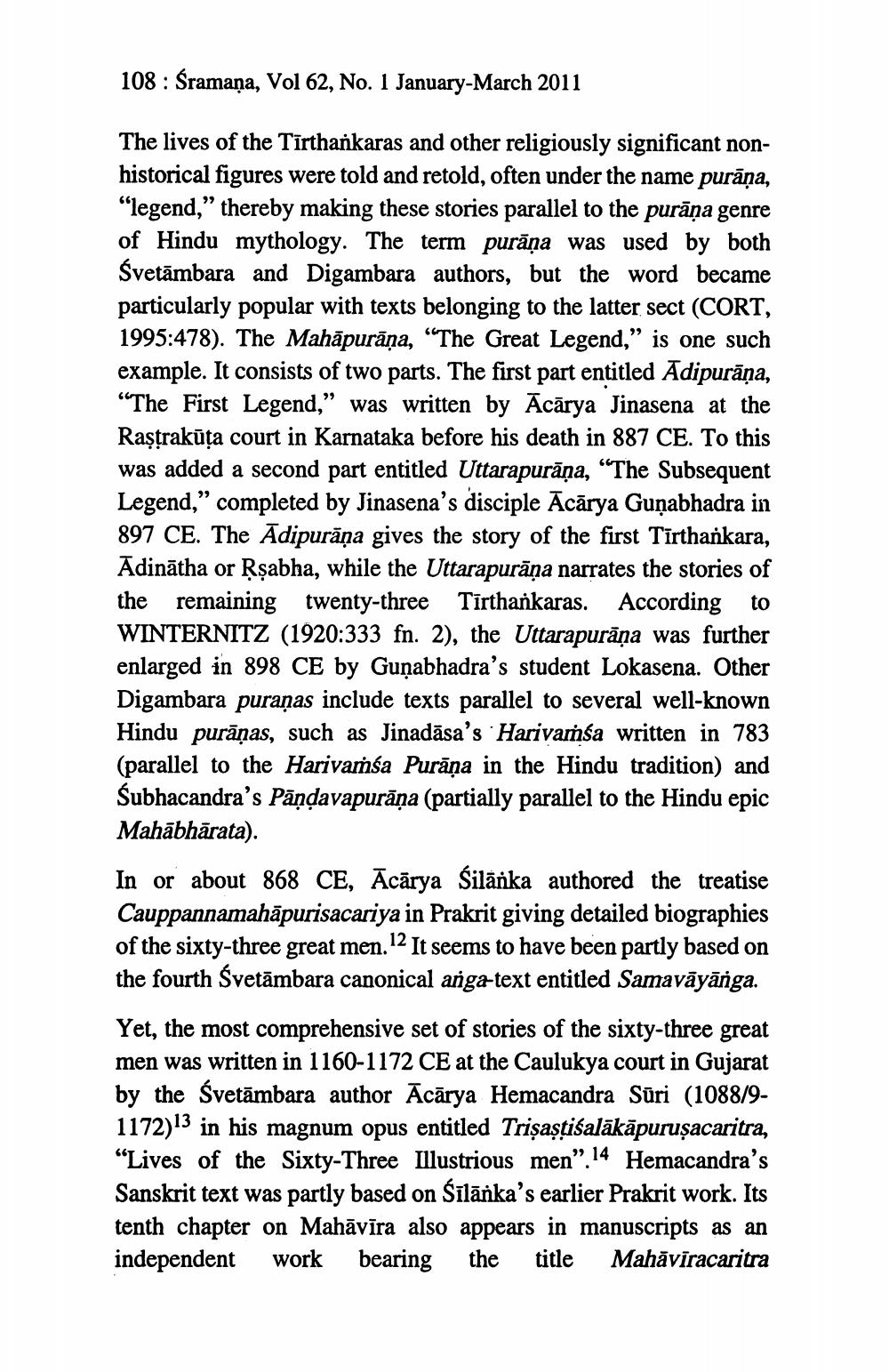________________
108: Śramana, Vol 62, No. 1 January-March 2011
The lives of the Tirthankaras and other religiously significant nonhistorical figures were told and retold, often under the name purāṇa, "legend," thereby making these stories parallel to the purāṇa genre of Hindu mythology. The term purāņa was used by both Śvetambara and Digambara authors, but the word became particularly popular with texts belonging to the latter sect (CORT, 1995:478). The Mahāpurāṇa, "The Great Legend," is one such example. It consists of two parts. The first part entitled Adipurāṇa, "The First Legend," was written by Acarya Jinasena at the Raṣṭrakūta court in Karnataka before his death in 887 CE. To this was added a second part entitled Uttarapuraṇa, "The Subsequent Legend," completed by Jinasena's disciple Acārya Gunabhadra in 897 CE. The Adipurāṇa gives the story of the first Tirthankara, Adinatha or Ṛṣabha, while the Uttarapurāṇa narrates the stories of the remaining twenty-three Tirthankaras. According to WINTERNITZ (1920:333 fn. 2), the Uttarapuraṇa was further enlarged in 898 CE by Gunabhadra's student Lokasena. Other Digambara puranas include texts parallel to several well-known Hindu purāņas, such as Jinadasa's Harivamsa written in 783 (parallel to the Harivaṁśa Purāņa in the Hindu tradition) and Subhacandra's Pandavapuraṇa (partially parallel to the Hindu epic Mahābhārata).
In or about 868 CE, Acārya Śilanka authored the treatise Cauppannamahāpurisacariya in Prakrit giving detailed biographies of the sixty-three great men. 12 It seems to have been partly based on the fourth Śvetambara canonical anga-text entitled Samavāyānga.
Yet, the most comprehensive set of stories of the sixty-three great men was written in 1160-1172 CE at the Caulukya court in Gujarat by the Śvetambara author Acarya Hemacandra Sūri (1088/91172)13 in his magnum opus entitled Triṣaṣṭiśalākāpuruṣacaritra, "Lives of the Sixty-Three Illustrious men".14 Hemacandra's Sanskrit text was partly based on Śīlānka's earlier Prakrit work. Its tenth chapter on Mahāvīra also appears in manuscripts as an independent work bearing the title Mahāvīracaritra




